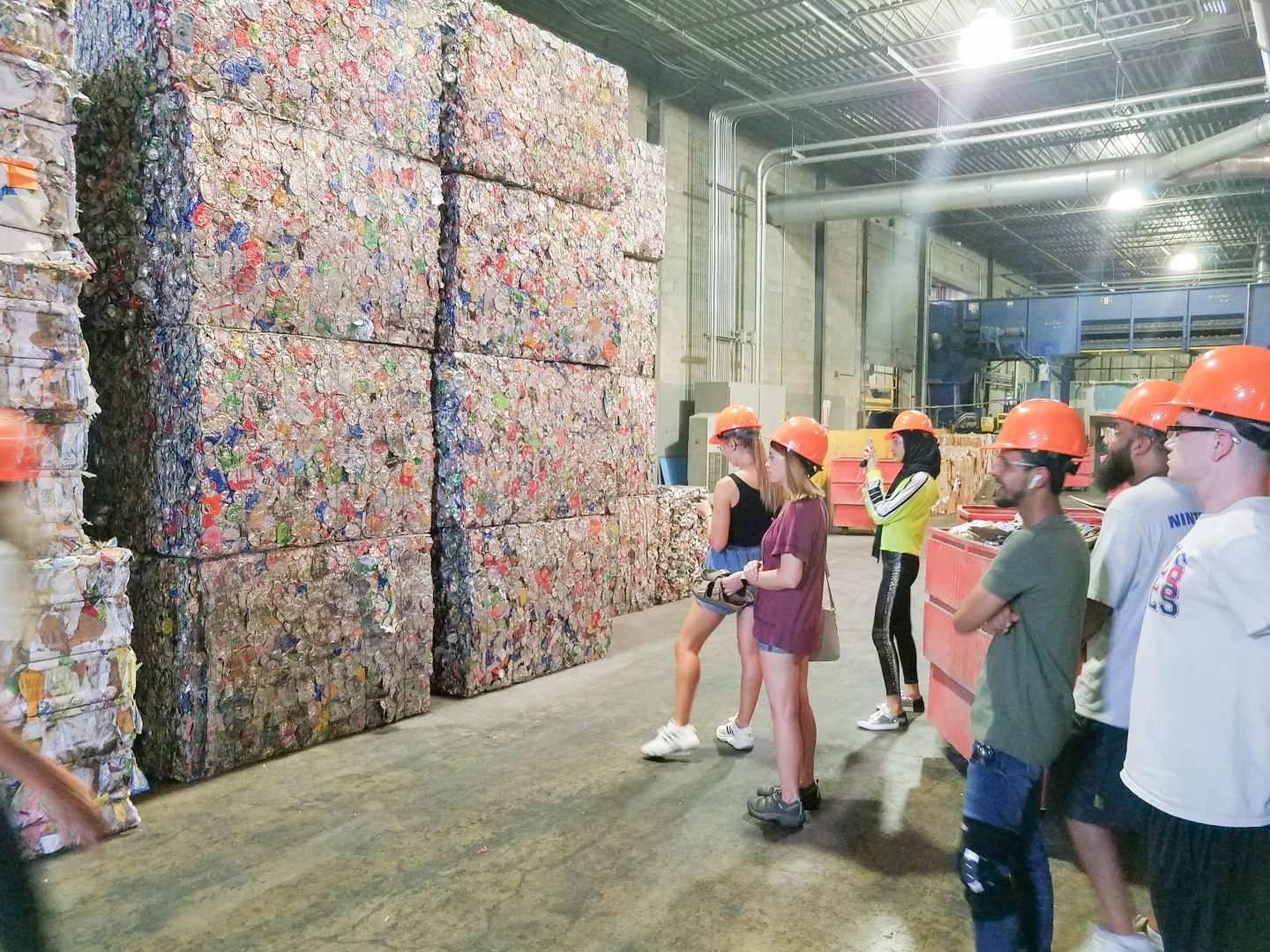The University of Indianapolis could be saving up to nine thousand dollars by making changes to waste management and recycling procedures, according to a research project done by the Supply Chain Management 386 class.
Students in the course at the UIndy School of Business were presented with an applied business project as a way to help them learn, according to Assistant Professor of Operations and Supply Chain Management Craig Seidelson.
The class was divided into two teams, one that did research over recycling and one over waste management, according to Seidelson. He said the project was for the students to research and investigate the recycling and waste management processes on campus.
According to Seidelson, the course can be a dry subject and hard to teach, but this project gave the students an opportunity to apply what they are using in the class into a real world setting. It was the class that decided on the issue of recycling and waste management on campus, he said.

The class then partnered with the UIndy Sustainability Committee and Facilities Management to research and find information on waste production and recycling throughout campus, according to Seidelson.
“The students, when they did their analysis of the waste generation on campus, the recycling on campus, they presented their results not only to the manager of the grounds, but also to the Sustainability Committee,” Seidelson said. “The Sustainability Committee took part in the grading. They were listening to what the students were presenting and determining if they felt the students understood the issues of sustainability, trash generation and how much recycling is being done.”
Issac Bush, junior supply chain management and finance double major said that understanding and acquiring the data was one of the hardest parts of the project. Bush was the leader of the recycling side of the project. He said it took 12 weeks for the team to acquire all the necessary data and then another six weeks for them to analyze and prepare it for presentation.
Bush said that Ray’s Recycling did not track the amount of recycling that they took from UIndy’s campus, so they had to find a way to get the information they needed.
“We would go to the recycling dumpsters before pickups every Tuesday and Thursday….” Bush said. “Then we would measure and analyze what percentage [they were] full and use that to calculate the volume that it took up. And then later in some of our analysis, we would have to convert this volume to general tonnage and pounds so that we could use that data.”
Bush said that his favorite part of working on the project was being able to apply the concepts from the class. He said that it was nice to be able to work on something that UIndy should care about.
According to Seidelson, the recycling team found that students on campus are not doing a good enough job when it comes to sorting the recyclables and non-recyclables. He said that it is costing the university money and that it is cheaper to have recyclables taken away rather than non-recyclables.
For the waste management side of the project, the results showed that UIndy is also losing money with the way it handles its waste, according to Seidelson.
One of the solutions offered to the board was to change the schedule of trash pick ups on campus as they found bins were not full when picked up, he said. According to the presentation given to the Sustainability Committee, the university could save over $9,000 by removing dumpsters at Cory Bretz, Central and Cravens halls.
“We found that there were a lot of recyclable materials inside of trash dumpsters, which is a waste of money” Seidelson said. “Besides the impact of the environment, it’s a waste of money because the university pays less to have recyclables taken away.”







